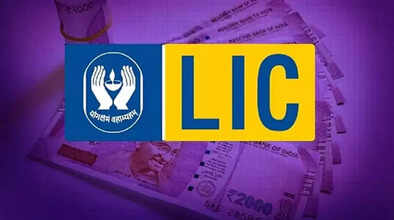LIC Policy: Don't make this mistake while purchasing a LIC policy, otherwise you won't get a single penny..

If you have deliberately hidden any important information while taking an insurance policy, then it can become a big problem for you or your family in the future. One such case has come to light from Haryana, in which, after the death of the policyholder, his widow did not get the claim from Life Insurance Corporation (LIC). The matter reached the Supreme Court via the consumer court, but in the end, the court also upheld LIC's decision.
This is the whole case.
Mahipal Singh, a resident of Jhajjar, Haryana, had taken LIC's Jeevan Arogya Health Plan on 28 March 2013. During the application, he described himself as completely drug-free. According to the information given to LIC, he was free from any addiction, such as alcohol, smoking, or tobacco. But within a year of taking the policy, Mahipal Singh's health deteriorated. He died on 1 June 2014. It was reported that he was admitted to the hospital due to complaints of severe stomach pain and vomiting. He underwent long treatment and finally died of cardiac arrest.
What was LIC's argument behind the claim rejection?
After the death of Mahipal Singh, his wife Sunita Singh filed an insurance claim to reimburse the treatment and other expenses. But LIC rejected the claim, saying that Mahipal Singh had a serious alcohol addiction, which he had hidden while taking the policy. According to LIC, medical reports revealed that Mahipal had been consuming excessive alcohol for a long time, which caused serious damage to his liver and kidneys. Due to those problems, his health deteriorated, and later he died.
Defeat even after a long legal battle
Sunita Singh approached the District Consumer Forum against the claim rejection. The court ordered LIC to pay the claim amount of ₹ 5,21,650, along with interest and compensation for mental harassment. LIC challenged this decision in the State and National Consumer Commission, but both commissions upheld the decision of the District Court. The commissions accepted that Jeevan Arogya Yojana is a cash benefit policy, not a reimbursement scheme, so the claim should have been given.
Supreme Court's decision in favor of LIC
LIC challenged the decision of the National Commission in the Supreme Court. The Supreme Court bench ruled in favor of LIC in its decision given in March 2025. Justice Vikram Nath and Justice Sandeep Mehta gave this decision on three important points:
The fact that was hidden became the cause of death. Mahipal Singh's alcohol addiction was hidden, and he died due to the same reasons.
It is mandatory to give information about habits like alcohol while taking insurance, as it directly affects the risk assessment of the insurance company.
The Supreme Court accepted that Jeevan Arogya Yojana is a cash benefit policy; in such a situation, if the disease is caused by alcohol, then it cannot be paid.
The policyholder should not make this mistake, even by mistake.
The Supreme Court made it clear in its order that if any disease, addiction, or habit is hidden while taking the policy, and later it becomes the cause of death or treatment, then the insurance company cannot be forced to give the claim. In this case, the court also rejected the 2015 case of Sulbha Prakash Motegaonkar vs LIC, in which it was said that if the hidden information did not become the cause of death, then the claim cannot be rejected. But in the case of Mahipal Singh, the opposite happened; the hidden thing itself was the reason for death.
This case is a warning for the crores of people who ignore small things while taking an insurance policy. Insurance is a contract of trust, in which both parties have to maintain complete transparency. If the policyholder hides any important information related to themselves, then their family may have to face big trouble in times of crisis.
Disclaimer: This content has been sourced and edited from TV9. While we have made modifications for clarity and presentation, the original content belongs to its respective authors and website. We do not claim ownership of the content.

